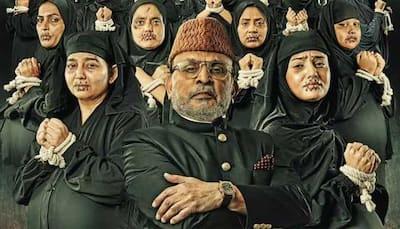
In a significant development on Friday, the Supreme Court of India declined a writ petition aimed at revoking the Central Board of Film Certification (CBFC) certification granted to ‘Hamare Baarah,’ a film starring Annu Kapoor and directed by Kamal Chandra. The matter was brought before a vacation bench led by Justice Vikram Nath, who expressed reluctance to delve into the merits of the petition, which was filed directly at the apex court.
The bench, which also included Justice S.V.N. Bhatti, highlighted procedural aspects, urging the petitioners to approach the Bombay High Court first, where the movie had already been examined. “You challenge the Bombay High Court order. The movie was screened and the Bombay judges have seen it. They directed expunging a few scenes, shots, and dialogues. If you seek leave and file an appeal, it would be correct for this court to examine the matter,” advised the bench.
Faced with the Supreme Court’s disinclination to entertain the plea, the counsel representing the petitioner opted to withdraw the writ petition. As a result, the plea was dismissed as withdrawn, though the court granted the petitioners liberty to file a special leave petition against the Bombay High Court’s decision, which sanctioned the film’s release on June 21.
Earlier this week, the Bombay High Court gave a green signal for the release of ‘Hamare Baarah,’ albeit with modifications to particular scenes, shots, and dialogues considered objectionable. The petition against the movie, filed under Article 32 of the Indian Constitution, argued that the film projected Muslim women as having no independent rights, and portrayed the Muslim community as the primary cause of India’s population surge.
“The director and producers of the film targeted a particular community and portrayed the status of Muslim women as slaves and chattels who are exploited by the male members.
. Verse 223 of the Surah Baqarah Chapter 2 of the Holy Quran has been misinterpreted and wrongly projected as ordaining the Muslim male to treat the Muslim female as his chattel and allowing him to exploit her in any manner,” stated the petition, filed through advocate Syed Mehdi Imam.
‘Hamare Baarah,’ directed by Kamal Chandra, boasts an ensemble cast including Ashwini Kalsekar, Rahul Bagga, Manoj Joshi, Aditi Bhatpahri, Paritosh Tiwari, Parth Samthaan, and Shaan Saxena. Following its trailer release, sections of the Muslim intellectual community expressed strong objections, accusing the filmmakers of grossly misinterpreting Islam and launching an implicit attack on the religion and the Muslim community as a whole.
The objections were sufficiently persistent that the film became a subject of intense legal scrutiny. The Bombay High Court reviewed specific content within the film and mandated the expunging of certain scenes to mitigate the contentious elements.
Despite the modifications, the petition brought forth by advocate Syed Mehdi Imam argued that the film still endangered communal harmony and misrepresented Islamic teachings in a derogatory manner. “The director and producers of the film targeted a particular community and portrayed the status of Muslim women as slaves and chattels who are exploited by the male members. Verse 223 of the Surah Baqarah Chapter 2 of the Holy Quran has been misinterpreted and wrongly projected as ordaining the Muslim male to treat the Muslim female as his chattel and allowing him to exploit her in any manner,” reiterated the plea.
The Supreme Court’s refusal to entertain the writ petition without a precedent appeal to the Bombay High Court marks a crucial juncture in the ongoing debate and legal proceedings surrounding ‘Hamare Baarah.’ This development could set a precedent for how similar cases are handled in the future, especially those involving sensitive religious and communal interpretations.
Though the film is now cleared for release, public and critical reception will likely play a pivotal role in its narrative trajectory post-release. Observers and stakeholders from various quarters are keenly watching how ‘Hamare Baarah’ will fare both at the box office and in the court of public opinion.
The controversy surrounding ‘Hamare Baarah’ serves as a stark reminder of the complex interplay between creative expression and religious sensitivity in contemporary India. As the country continues to grapple with issues of censorship, freedom of speech, and communal harmony, cases like this emphasize the necessity for a balanced approach in adjudicating matters that touch the cultural and social fabric of the nation.












